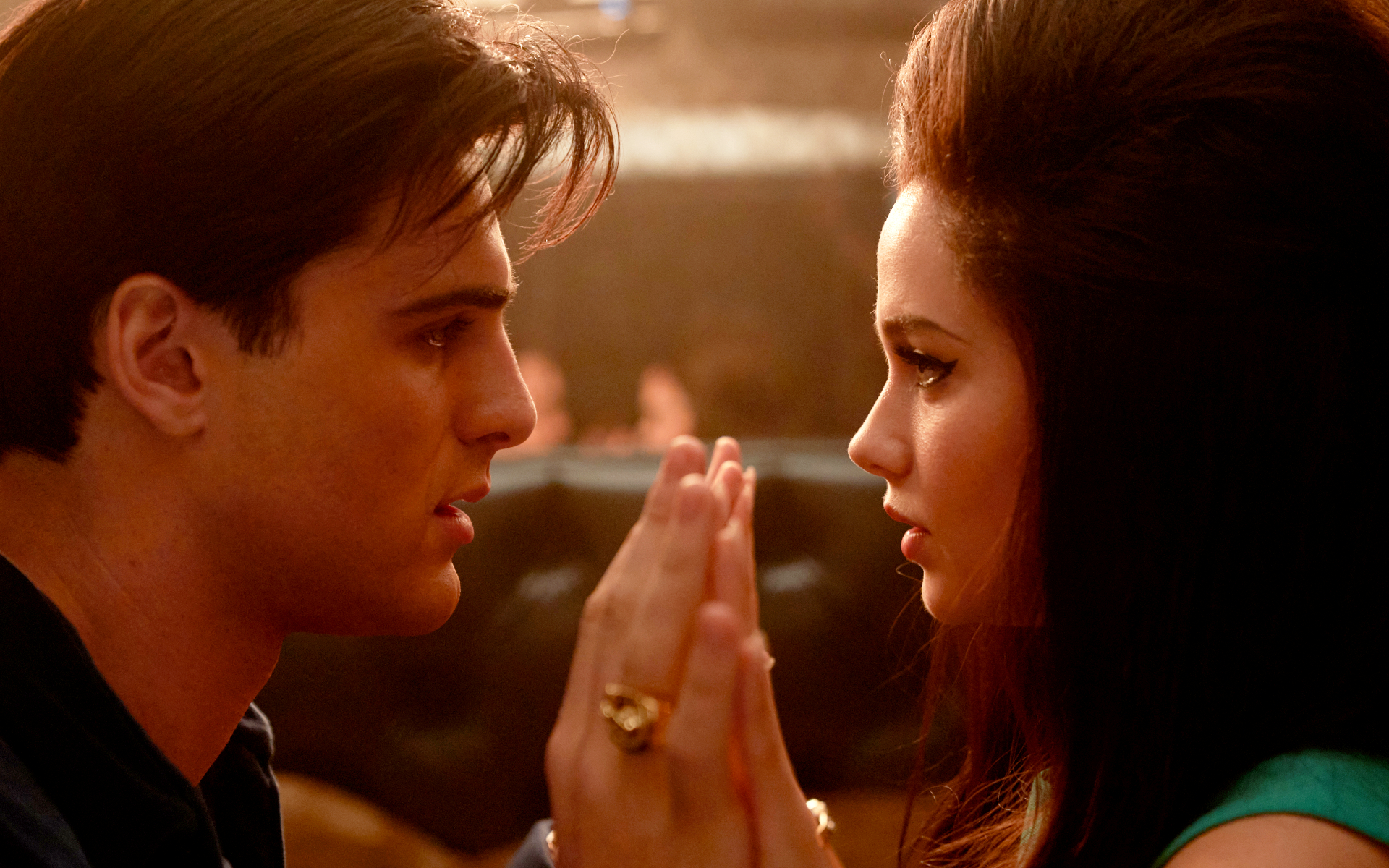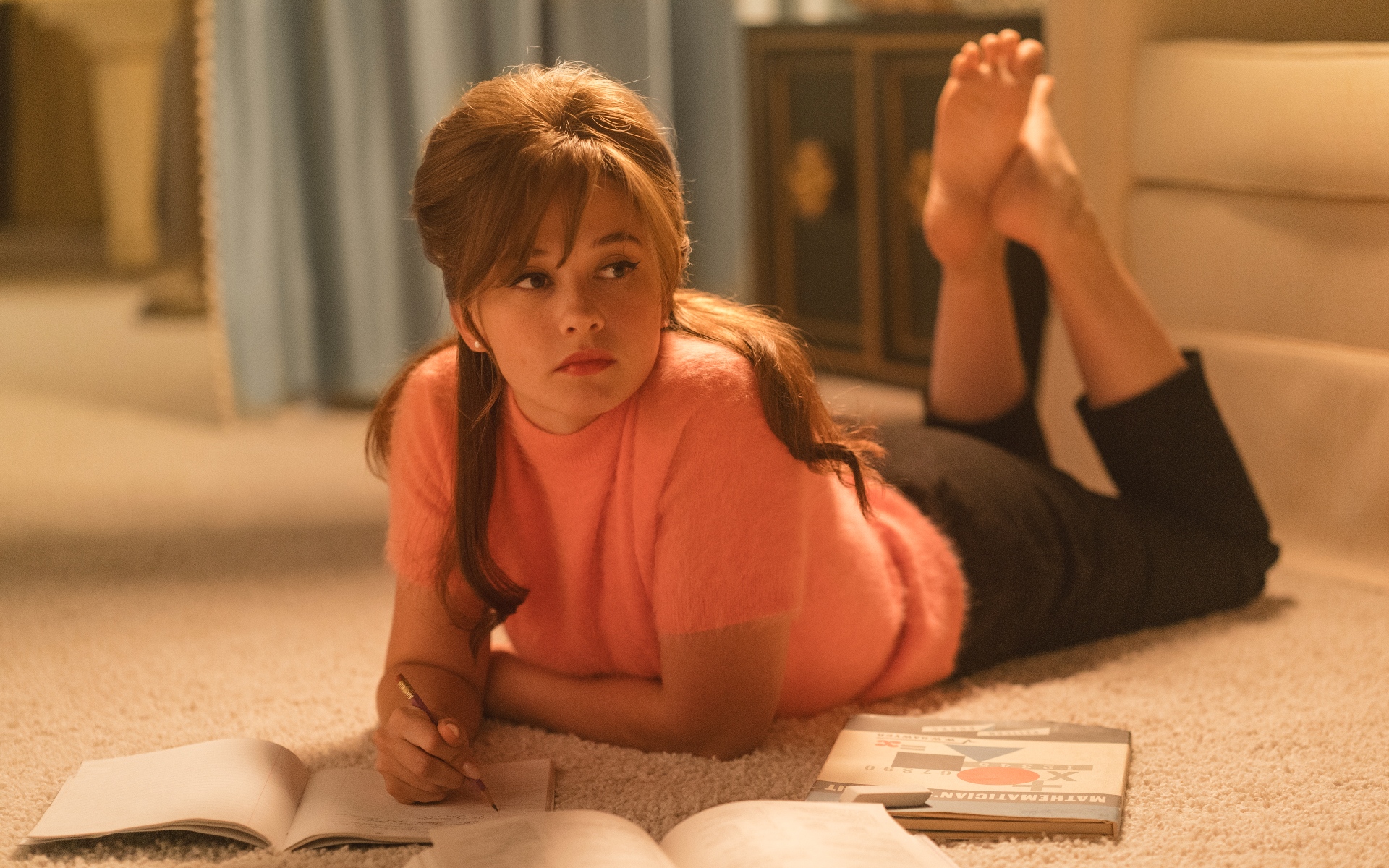
It’s hard not to contrast Priscilla, Sophia Coppola’s Priscilla Presley biopic, with 2022’s Elvis extravaganza from the king of showbiz, Baz Luhrmann. At every turn, they are striking counterpoints.
Where Luhrmann's movie was glitzy, vibrant, dynamic and focused on Elvis the icon, Coppola’s movie is meditative and dreamy, its colors are muted and the pacing is slow (sometimes tediously so). And, of course, its focus isn’t on Elvis and showbiz, well not directly, but on the limited, suffocating, domestic space that Priscilla Beaulieu — eventually Presley — gets to inhabit. And then there’s the real-life contrast in that Luhrmann’s film came with the blessing of The Presley Foundation (set up by the late Lisa Marie Presley). Coppola’s production, which is based on Priscilla Presley’s 1985 memoir, Elvis and Me, was slammed by Lisa Marie Presley, according to reports in Variety, and was refused the right to use any Elvis songs.
But Priscilla is worth seeing in its own right, not just as a counterbalance to Elvis. It comes at the well-trodden story from the perspective of Priscilla, ostensibly the lead character but she's always on the fringes of her own story.
In typical Coppola fashion, she builds this world meticulously: constantly creating a sense of time and place with subtle changes of clothes, furnishings, cars and music as the film moves from 1950s Germany, tracking through 1960s Gracelands, Vegas and Los Angeles, and finally, to Priscilla loosening the hold Elvis had over her and her eventual breakout in 1972.
Priscilla starts with a close-up of feet padding through a thick carpet — she barely leaves a trace in her opulent, but cocooned life. Then we flash back to 1959, to an army base in Germany where the 14-year-old Priscilla (Cailee Spaeny) drinking a milkshake is spotted as a potential “friend” for Elvis and is invited to a party at his house. Despite (or maybe because of) her young age, Elvis (Jacob Elordi), who’s enlisted in the U.S. Army, is drawn to her and so begins the fateful relationship that would span almost two decades, enduring even after their eventual divorce.

Much has been made of the ten-year age difference between the two and Coppola deliberately foregrounds the fact: capturing Elordi’s imposing 6'5" frame towering over his ninth-grade love interest, or switching between Priscilla day-dreaming in class and Elvis drinking in smoke-filled rooms with a cast of middle-aged hangers-on. And although Coppola’s movie tone is always cool and ostensibly objective, she continually highlights how easily adults in Elvis’ orbit, from his friends and associates to her parents, give in to his wishes, when they should know better — first to her dating him, then to visiting him at Gracelands and finally when she’s still at high-school she’s allowed to move countries and move in with him.
The film studies the way Elvis love-bombs the shy 14-year-old, then starts to mold her in his own image: her eye makeup evolves, her hair gets bigger (like Elvis), she’s made to dye it black (like Elvis), her girlish pastel dresses are swapped for sophisticated designs (he doesn’t like brown. Or printed fabric. Or loose-fitting smocks.) Once she’s primped to his satisfaction he tucks her away at Graceland, not allowed to have friends over, take up hobbies or a job or even sit in the garden for fear of prying eyes. While she sits in her gilded cage, he heads off to star in movies and indulges in high-profile affairs with his co-stars.
If this sounds like a one-sided portrayal, it’s not. It’s a careful observation of how complex the man behind the icon can be and how hard it is to live in his orbit.
Elvis, as played superbly by Elordi, is stunted by grief after the death of his mother, popping pills and drinking heavily, driven by ego, he’s charming, mercurial, competitive and easily bored. From the moment she meets him, Priscilla is focused only on how she can stay at his side — deliberately ignoring his affairs, his neglect and bouts of anger. It’s an almost impossible job that requires her to squeeze herself into whichever shape he wants her to be that day and leave any sense of self at the door. Coppola has a track record of films that feature dreamy, young women struggling to find their place in the world — from Virgin Suicides to Lost in Translation and (my favorite) Marie-Antoinette — but this also has parallels with the dreamlike Princess Diana movie, Spencer, from Pablo Larrain.
Priscilla is an uneven film. The first half is engrossing. The second part crawls along before there’s a rush to a rather abrupt ending. We seem to skip several stages of Priscilla’s emancipation, we get a montage of her changing (hair getting lighter and sleeker, clothes less doll-like, she suddenly has friends and hobbies) but no sense of why or how that came about. And that’s the frustrating gap in this film. You’d like to cheer on the great escape but there’s no build-up or trigger for it. Priscilla and her motivations start and remain completely unknowable to the end.
Priscilla is now playing in US movie theaters. It premieres in the UK on January 5, 2024.







